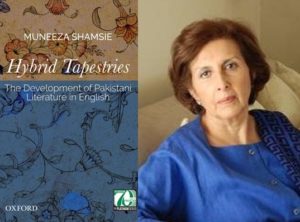On Priyanka Chopra delivering the Penguin Annual Lecture ( 26 Dec 2017)
...[it is a ] culturally awkward relationship between the voice of women and the public sphere of speech-making, debate and comment…the fact that women, even when they are not silenced, still have to pay a very high price for being heard, we need to recognise that it is a bit more complicated and that there is a long back-story.”
Mary Beard Women & Power: A Manifesto
On 26 December 2017, actress Priyanka Chopra delivered the annual Penguin Lecture — “Breaking the Glass Ceiling:  Chasing a Dream”. The invitation came with the following note:
Chasing a Dream”. The invitation came with the following note:
One of the most prestigious and eagerly awaited cultural events on the calendar, the Penguin Annual Lecture, hosted by Penguin Random House India, was started in 2007 as an initiative to bring leading writers, artists, thinkers and key personalities from India and across the world in direct contact with audiences and admirers in India. The first such event to be organized by a publishing house in India, the Penguin Annual Lecture is immensely popular with readers, book lovers, and the youth in particular. This will be the eleventh edition of the Penguin Annual. Lecture; over the past ten years, speakers have included thought leaders like His Holiness the Dalai Lama, Dr APJ Abdul Kalam, Professor Amartya Sen, Thomas Friedman, Amitabh Bachchan, Ramachandra Guha, and beloved authors from both India and abroad like Dan Brown, Jeff Kinney and Ruskin Bond. Through the Penguin Annual Lecture, Penguin Random House India aims to spread the thrill of fresh ideas to a new generation of readers, thinkers and future achievers.
The fact that this invitation to speak at a publisher’s annual lecture had been extended to a woman speaker for the first time, that too a popular Bollywood-transiting-into-Hollywood desi actress, caused a great deal of furore. ( Scroll and Feminism India ) Even feminist publishing house Zubaan Books released a series of tweets questioning the decision to invite Priyanka Chopra instead of the more established Indian women writers — referenced in the links provided. All had valid reasons for their objection.
Now hear Priyanka Chopra’s speech:
#Throwback to the time Priyanka Chopra delivered the #PenguinAnnualLecture and told us how to be fierce, fearless and flawed.
Posted by Penguin India on Wednesday, December 27, 2017
Unfortunately what irks a larger group of people is that Priyanka Chopra has no credentials as an author. Even when she was being introduced at the lecture there was no mention of her as an author though during the speech Priyanka Chopra fleetingly refers to herself as one. Many of the critics are disappointed that no woman writer was considered as is evident from the many names shared on social media. In fact on previous occasions some of the prominent male authors were flown in from different parts of the world to deliver the lecture. Surely such arrangements could have been made to locate an equally prominent woman speaker? Mary Beard, for instance, who is quoted at the beginning of this article, or PRH writers like Elif Shafak, a popular novelist and TED talk speaker — “Politics of Fiction” ( 2010) and “The revolutionary power of diverse thought” (2017). An extensive list of possible women writers — whether from India or abroad — can easily be drawn up from within the PRH stables itself!
Having said that the lecture borders on being motivational. Priyanka Chopra speaks well. She speaks forcefully and clearly. However she may couch the words, the fact is Priyanka Chopra is living her feminism by negotiating her spaces every single day. Years ago, when she was a relatively new to Bollywood, she gave an interview where she did not mince words about the fees she charged, the quality of her work and the fact she had to pay bills and needed to earn well to do so. It was refreshing to hear her say this. She continues to be frank and honest about her opinions. In a sense she is also representative of the second wave of feminists — the modern generation. Women of today who may not like to believe they are feminists as they do not necessarily practise it in the activist mould, and yet celebrate and believe these spaces are their birthright –ironically spaces which were made visible and won by many of the very same activists modern women shun. Yet they live it, imbibe it and continue to make choices which challenge boundaries — constantly. Priyanka Chopra symbolises this generation of women and is a fine role model for many. She also have the gift of being able to communicate as is evident from her interaction with the audience.
Penguin Random House India like many other publishing firms at this point of time are in the process of evolving, responding to new market forces, the alignment of the hyper-local publishing programme with the global scenario as in emergence of new business models. At the same time the brand identity of the firm has to be maintained and strengthened. This can only be done by reaching out to newer audiences that will in the long run ( hopefully!) convert to new readers as well. The fact remains Penguin Random House India with this event has ensured its brand recall has only became stronger irrespective of the animated conversations that have taken place in the past few days. It is a complicated space to be inhabiting today and for now, the celebrity publishing space has PRH India at its helm. This despite the actress’s biography by well-known film critic Aseem Chhabra is to be published by Rupa Publications in 2018.
Ultimately Penguin Random House India did well in their choice of speaker — it made good business sense!
Update ( 5 January 2018)
Writers Kiran Manral and Anil Menon have pointed out that in 2013 the superstar Amitabh Bachchan was invited to give the Penguin Annual Lecture. At the time there was little outrage as has been expressed now at inviting a Bollywood star to the event. Anil Menon adds “I don’t remember anyone complaining then, even after he pointed out in his discussion with Rajdeep Sardesai that ‘I would never have imagined 50 years ago that a publishing house would invite a film actor to speak’. The Penguin Annual Lecture is not a celebrity event. It is an event where someone who is famous for something other than just being famous is called to talk about books. That is a good thing.”
4 January 2018 
Updated on 7 Dec 2018
Mary Beard has released an updated version of her book Women and Power. The new edition has an afterword written after the #MeToo movement that unleashed a flood of testimonies or as she sees them, “self-empowering” narratives. Beard’s essay reflects when as a PhD student she was travelling in Italy for research and was towards the end of her stay when she was raped in a train. This happened over four decades ago.
****
“…in some respects, the Me Too movement fits my arguments in this book uncomfortably well. As I have tried to show, right back to Philomela ( who wove denunciation of her rapist into her tapsestry), women have often been allowed a limited voice, at least, in raising questions of their own treatment and abuse as women. #MeToo has made a gratifingly loud noise that, for once, has been transmitted over most of the planet, but it still falls into that general category. Even more to the point, the root cause of the harassment that women have suffered (and the root cause of the earlier silence of so many) surely lies in the structures of power. If so, then the only effective remedy lies in a change to those structures. While fewer than ten per cent of the directors of the top Hollwood films are women (that was the case in 2017), men will remain the gate-keepers of success in the film industry, and the effect of women’s voices on its sexual culture — however loudly those voices have now been raised — is likely to be limited.
****
Mary Beard will also be one of the speakers at the Jaipur Literature Festival 2019.
We were lucky to grab a few minutes yesterday with classicist, troll slayer, bestselling author & generally brilliant person @wmarybeard, who told us about the pb edition of #WomenandPower and its new chapter which addresses #MeToo. https://t.co/cRZQA81f2K pic.twitter.com/RE7nd1vxCd
— Profile Books (@ProfileBooks) December 6, 2018



